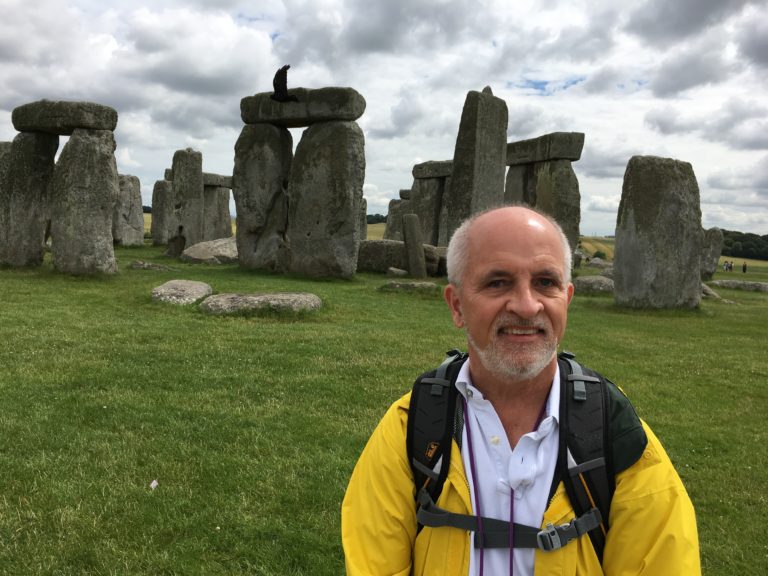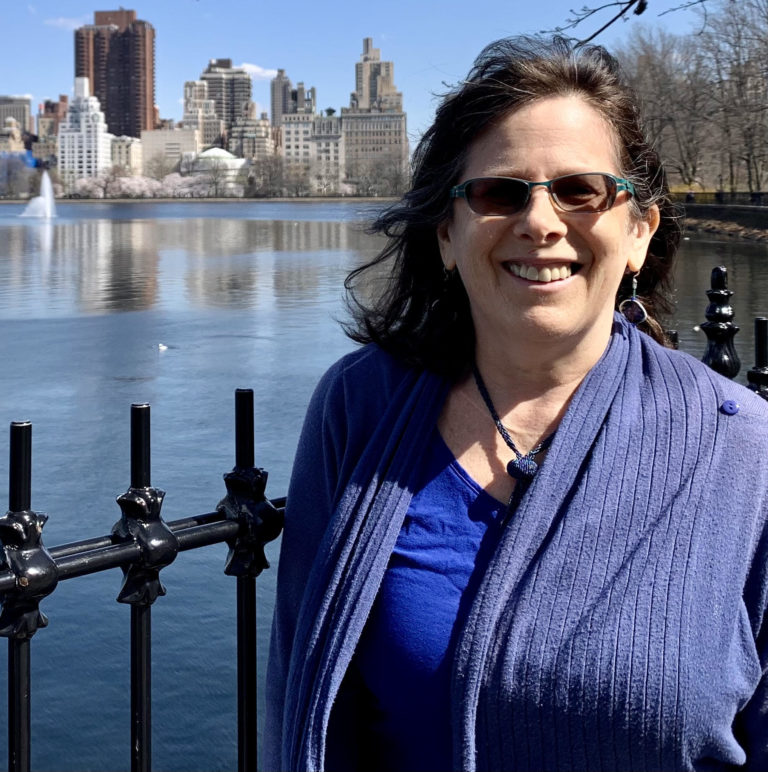At first glance, Cheryl Brown and David Kaufman are very different people.
She grew up in a tight-knit Jewish community in Minnesota. He is a southerner whose formative years were spent living in Alabama and Georgia.
She moved to New York City in the 1970s to pursue a career in social work and never left. After college, he was commissioned as an officer in the Navy and lived in several countries before settling in Charleston, South Carolina.
She’s liberal. He said he’s on the opposite side of the political spectrum. But that’s not a problem for them.
In fact, it’s the point.
She’s liberal. He said he’s on the opposite side of the political spectrum. But that’s not a problem for them. In fact, it’s the point.
Cheryl and David met through Braver Angels in May 2021 and have been talking ever since through Red/Blue 1:1 conversations, which are structured one-hour discussions connecting a conservative and a liberal.
While Cheryl learned about Braver Angels through her work as a therapist – co-founder Bill Doherty was her teacher – David discovered it after struggling to talk to his neighbors, who are Democrats, about controversial issues. “You don’t know it’s a sensitive topic until it’s too late,” he said.
“The more conversations you have, the more familiar you become, the more sensitive issues you’re willing to discuss,” David said.

Since joining Braver Angels, David’s expanded his horizons. “The more conversations you have, the more familiar you become, the more sensitive issues you’re willing to discuss,” he said. So far, he’s had nine 1:1 partners from “all walks of life” and just finished his 27th conversation.
His advice to first-timers is fairly straightforward: follow the script. “It helps you get deeper rather than show the other person is wrong,” he said. Cheryl agreed, adding that they typically choose a topic, study up, and then both people share their opinions with each other.
This information exchange has gone beyond the confines of their scheduled conversations and has evolved into a regular practice, during which each person will share articles they find interesting and ask for the other’s perspective.
The more Cheryl learns, the longer she spends reading the news, and the less she’s watching the news. She believes the on-air anger and toxicity stokes division and distorts people’s perception of those on the opposite side of the political spectrum. “I just stopped listening to cable news altogether,” she said. “I can’t stand it anymore.”
Still, there’s room for healthy disagreement. In their last conversation, Cheryl made a throwaway comment about how former President Donald Trump was beholden to Vladimir Putin, not thinking it was a controversial take. But David had a different reaction. “I was stunned,” he said. “I had never heard that. I thought Trump did a good job at keeping Putin in check.
“Being exposed to someone with totally different values and trying to see the world through their lens is invigorating,”
David said.

These moments of surprise create opportunities to learn, which David values most about these conversations. “Being exposed to someone with totally different values and trying to see the world through their lens is invigorating,” he said.
Both Cheryl and David have been able to grow through this process. “Sometimes I feel a little inadequate,” Cheryl said. “I don’t have the best American history background.” But through talking to David, a man who’s served this country, she said she’s been able to deepen her understanding of America’s past and present.
As for David, he’s learned to navigate and avoid confrontation by knowing “when to keep talking and when to shut up.” It doesn’t always come naturally to him. “I’m an introvert,” he said. “But now I don’t let an initial interaction shut me down.”
These conversations are “an opportunity to speak to someone who lives very differently from you but wants to understand your perspective,” Cheryl said.

These conversations are “an opportunity to speak to someone who lives very differently from you but wants to understand your perspective,” Cheryl said. “You go in with the same curiosity to learn, and you get to learn about someone you never would’ve met.”
One of the most meaningful lessons? They’re not as different as they initially thought. Both Cheryl and David described the other as “curious” with a commitment to serving people.
“David does a lot of volunteer work and fundraising for domestic abuse shelters,” Cheryl said. And Cheryl uses her work with Braver Angels to train therapists to bridge the political divide in this country. “I have a special PowerPoint slide on David,” she said.
Despite their different backgrounds, experiences, and perspectives of the world, Cheryl and David have overlap where it counts: a commitment to curiosity, a love of learning, and a belief in helping people – and each other – create a better future for our country.
To sign up for or learn more about Braver Angels 1:1 Red/Blue, Urban-Suburban/Rural-Small Town Conversations, Conversations Across Generations, and Conversations About Race, Ethnicity and Culture, go to this link. To suggest more stories I could report from the Braver Angels community, send me a note at gtimmis@braverangels.org.
— Gabriella Timmis, Braver Angels Field Reporter




